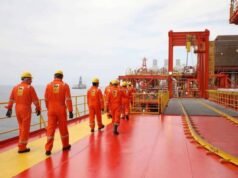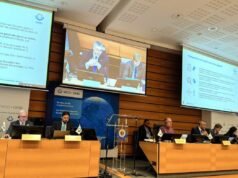An active work is underway on final harmonization of positions of all Caspian littoral states on the legal status of the Caspian Sea, Azerbaijan’s Ambassador to Russia Polad Bulbuloglu said in an interview with TASS.
“The issue of developing a new legal status of the Caspian Sea aroused following a change in the political geography of the region after the collapse of the USSR, when the two countries were replaced by five Caspian states. To this end, an Ad Hoc Working Group (AHWG) at the level of Deputy Foreign Ministers has been established. To date, 49 meetings of the AHWG have been held, during which a great deal of work to harmonize positions and develop common approaches has been done,” he said.
During the four summits of the Caspian littoral states, serious progress has been recorded, and important agreements that regulate the preservation of the ecological environment and bio resources of the Caspian Sea, prevention and liquidation of the consequences of emergency situations have been concluded, Bulbuloglu added.
He noted that a rather detailed agreement has been reached on the vast majority of the issues between a number of countries, including Azerbaijan, Kazakhstan and Russia.
“An active work on final harmonization of the positions of all five states on the legal status of the Caspian Sea is underway. In this regard, working results have been achieved, which make it possible to talk about the advisability of holding a meeting of deputy ministers and then the foreign ministers of the Caspian states in order to come up with coordinated proposals for the Fifth Summit of Heads of State scheduled for this year in Kazakhstan,” the diplomat said.
The Caspian Sea is surrounded by the five coastal countries of Azerbaijan, Iran, Kazakhstan, Russia and Turkmenistan. The Sea has a total surface area of 371,000 km², holding 78,200 cubic km of water.
The legal status of the Caspian Sea has remained unsolved during the past two decades, preventing development and exploitation of its disputable oil and gas fields and creating obstacles to the realization of major projects.
Russia, Kazakhstan, and Azerbaijan hold to the principle of dividing into national sectors based on the “median line” principles since it is an international boundary lake, and leaving the sea surface for general use, i.e. they are for demarcation of mineral resources and the Caspian Sea shelf, but against dividing up its waters.
Iran seeks an equal division of the Caspian into 5 even sectors, mainly because most of the offshore energy resources are located away from the Iranian coastline. Turkmenistan also demands the division of the Sea into equal parts between the pre-Caspian countries so that each country has 20 percent of the sea.
The Caspian littoral states signed a Framework Convention for the Protection of the Marine Environment of the Caspian Sea in November 2003.






